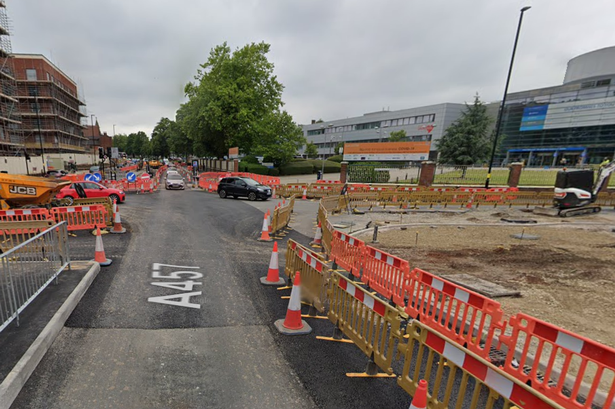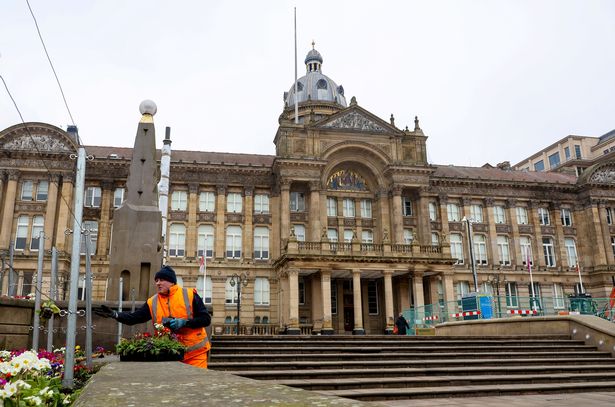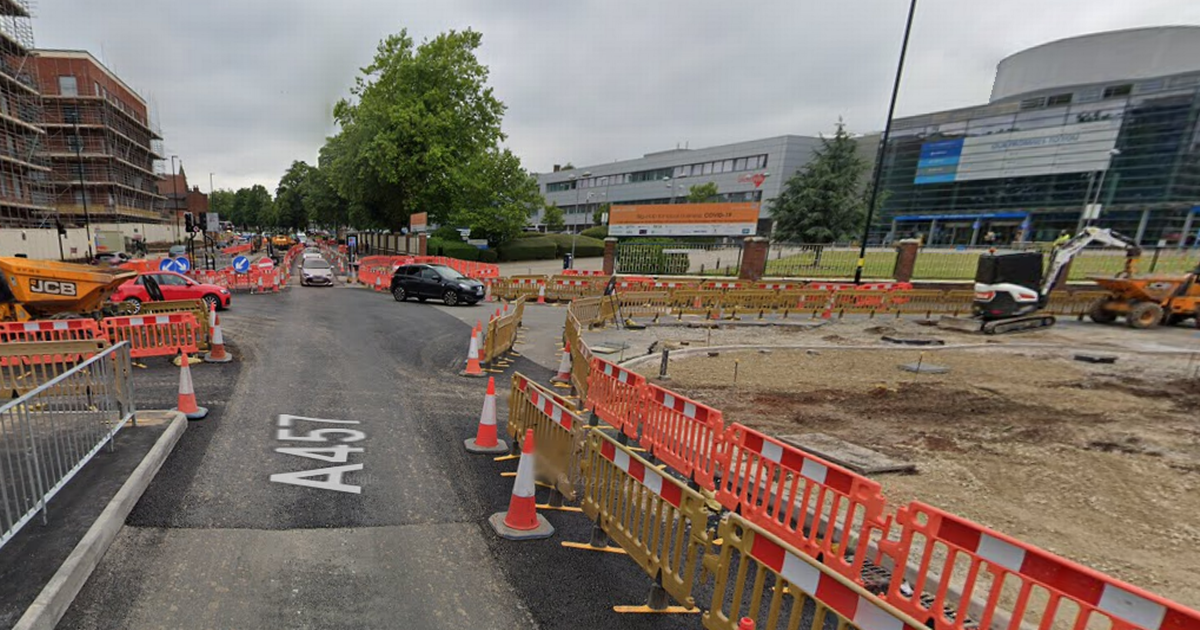Birmingham City Council said the project had been hit by ‘unforeseen inflationary pressures and rising costs’ Works being carried out on the A457 Dudley Road back in 2022(Image: Google Earth)
Works being carried out on the A457 Dudley Road back in 2022(Image: Google Earth)
Birmingham City Council’s scheme to improve a key route may end up costing at least £7 million more than its original budget.
Works have been carried out recently as part of the major A457 Dudley Road project in a bid to better journey times and enhance public transport.
The council is therefore providing new bus lanes, upgrading facilities for pedestrians and cyclists and improving junctions to reduce congestion.
READ MORE: Government minister’s message as hopes for Birmingham council crisis inquiry fade
But “emerging pressures” have meant permission is now being sought for around £2.5m worth of extra funding – bringing the forecast cost to complete the whole project to around £39.6m
The council’s cabinet previously approved the £32.1m original budget in 2022 and then a revised budget of £37.1m a year later “to account for inflationary pressures and design changes”.
Government-appointed commissioners, sent to oversee the crisis-hit council’s recovery, said it was “disappointing” that the scheme is seeking a further £2.5m of funding.
“It looks likely to be £7.5m (23 per cent) over the original budget,” they wrote.
“This latest increase in costs follows the previous £5m allocation and a lessons learnt report.
 Birmingham City Council House in March 2024.(Image: Anita Maric /SWNS)
Birmingham City Council House in March 2024.(Image: Anita Maric /SWNS)
“Commissioners note that this report highlights the delays and costs incurred when design is not fully finalised and risk assessed before committing to contract.
“This, regrettably, is not unknown in the industry yet these basics are still ignored.”
It is proposed that the £2.5m shortfall is met from Bus Lane Enforcement net surplus income.
In a recently-published report, the council said the revised budget in 2023 was approved to “accommodate wider unforeseen economic inflationary pressures and rising base energy, material and labour costs resulting from wider global financial instability”.
Other factors, such as delays resulting from technical approvals, have also had an impact.
‘Increased cost pressures’
“The programme for delivery of phase four has been dictated by the ongoing decommissioning and demolition of City Hospital and the protracted delays to the opening of the New Midland Metropolitan University Hospital,” the report continued.
“This has resulted in further extensions to the A457 delivery programme with increased cost pressures impacting the overall scheme budget.”
It went on to say that existing issues will be exacerbated if all four phases of the project are not completed.
According to the report, these include: “Congestion for all modes of transport, health issues related to harmful air pollutants, low levels of physical activity, casualties from traffic collisions and social exclusion from poor accessibility to jobs and education opportunities.”
Ahead of a meeting next Tuesday, April 29, the council’s cabinet have therefore been recommended to approve the funding of £2.5m to complete the delivery of phase four.
READ MORE: HS2 ‘reset’ explained – impact on Birmingham, potential delays and ‘serious challenges’
Phase one of the scheme was completed in July 2022, where the improved junction unlocked access to the Galliard/Soho Wharf development.
The second phase was then completed in late summer 2024, with new and improved cycle facilities, footways and ‘highway realignment’ to incorporate bus lanes.
Phase three, focusing on Lee Bridge and Icknield Port Road Junction, is under construction and will provide additional highway capacity.
The final phase of the A457 project plans to provide the “missing link” to the segregated cycleway on the frontage of City Hospital / Birmingham Treatment Centre.
On the council’s financial crisis, external auditors have highlighted several issues including the equal pay debacle, inadequate budget setting, poor service management, demand led pressures and the disastrous implementation of a new IT system.
Labour politicians have also highlighted the impact of funding cuts over the past decade or so.
